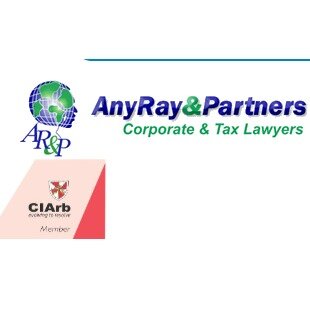Best Hiring & Firing Lawyers in Ivory Coast
Share your needs with us, get contacted by law firms.
Free. Takes 2 min.
Or refine your search by selecting a city:
List of the best lawyers in Ivory Coast
About Hiring & Firing Law in Ivory Coast
Hiring and firing laws in Ivory Coast are governed by the Labor Code of the country. It is important for employers to adhere to these laws to ensure a fair and legal process when hiring or terminating employees.
Why You May Need a Lawyer
You may need a lawyer specializing in Hiring & Firing in Ivory Coast in situations such as disputes with employees, wrongful termination claims, unfair labor practices, or any legal issues related to hiring and firing processes.
Local Laws Overview
Some key aspects of the local laws in Ivory Coast regarding Hiring & Firing include regulations on contracts, probation periods, notice periods for termination, severance pay, and legal procedures for dispute resolution.
Frequently Asked Questions
1. Can an employer terminate an employee without cause?
In Ivory Coast, employers can terminate employees without cause, but they must provide proper notice and follow the legal procedures outlined in the Labor Code.
2. Is severance pay mandatory in Ivory Coast?
Severance pay is mandatory in Ivory Coast and is typically calculated based on the employee's length of service.
3. What are the probation period requirements for new employees?
The probation period for new employees in Ivory Coast is typically three months but can be extended up to six months in certain cases.
4. Are there any specific regulations regarding hiring foreign employees?
Yes, there are specific regulations regarding hiring foreign employees in Ivory Coast, including obtaining work permits and complying with immigration laws.
5. Can employees file wrongful termination claims?
Yes, employees in Ivory Coast can file wrongful termination claims if they believe they were unfairly dismissed or if their rights were violated during the termination process.
6. What legal steps should employers take before firing an employee?
Employers should provide written notice of termination, follow the required notice period, and comply with any legal requirements outlined in the Labor Code.
7. How can a lawyer assist in hiring and firing processes?
A lawyer can provide legal advice, draft employment contracts, assist in dispute resolution, represent clients in legal proceedings, and ensure compliance with labor laws.
8. What are the penalties for non-compliance with labor laws in Ivory Coast?
Non-compliance with labor laws in Ivory Coast can result in fines, penalties, or legal action taken against the employer.
9. Are there any limitations on the reasons for termination?
Employers in Ivory Coast cannot terminate employees based on discriminatory reasons such as race, gender, religion, or disability.
10. How can employees seek legal assistance for wrongful termination claims?
Employees can seek legal assistance from a labor lawyer or contact the labor department for guidance on filing a wrongful termination claim.
Additional Resources
For additional resources on Hiring & Firing laws in Ivory Coast, you can refer to the Labor Code of the country, contact the Ministry of Labor, or consult with a legal professional specializing in labor and employment law.
Next Steps
If you require legal assistance in Hiring & Firing in Ivory Coast, it is recommended to seek advice from a qualified lawyer who can guide you through the legal process and ensure compliance with the relevant laws and regulations.
Lawzana helps you find the best lawyers and law firms in Ivory Coast through a curated and pre-screened list of qualified legal professionals. Our platform offers rankings and detailed profiles of attorneys and law firms, allowing you to compare based on practice areas, including Hiring & Firing, experience, and client feedback.
Each profile includes a description of the firm's areas of practice, client reviews, team members and partners, year of establishment, spoken languages, office locations, contact information, social media presence, and any published articles or resources. Most firms on our platform speak English and are experienced in both local and international legal matters.
Get a quote from top-rated law firms in Ivory Coast — quickly, securely, and without unnecessary hassle.
Disclaimer:
The information provided on this page is for general informational purposes only and does not constitute legal advice. While we strive to ensure the accuracy and relevance of the content, legal information may change over time, and interpretations of the law can vary. You should always consult with a qualified legal professional for advice specific to your situation.
We disclaim all liability for actions taken or not taken based on the content of this page. If you believe any information is incorrect or outdated, please contact us, and we will review and update it where appropriate.
Browse hiring & firing law firms by city in Ivory Coast
Refine your search by selecting a city.












